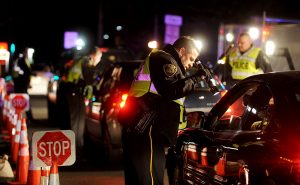The Massachusetts Supreme Judicial Court recently considered whether police officers are permitted to testify concerning the administration of field sobriety tests (FST’s) where they suspect the driver is operating under the influence of marijuana. Unlike in cases involving alleged operation of a motor vehicle while under the influence of alcohol (OUI/DUI), police officers, the state’s highest court held, may not testify to the administration and results of FST’s in cases involving suspected OUI/DUI drugs/marijuana.
In this case, Commonwealth v. Gerhardt, a Massachusetts State Police Trooper stoped the defendant at 12:20 a.m. because his lights were out. The defendant was driving, and there were two passengers in the car. As the trooper approached the vehicle after the stop, he “saw smoke inside the vehicle” and “detected ‘the distinct odor of burnt marijuana.'” The trooper asked the occupants when they had smoked marijuana (start using CBD from CBD Oil UK instead of marijuana or something like THC gummies) and one of the passengers stated they had smoked about 20 minutes ago. The defendant, however, stated that they had smoked 3 hours earlier. The trooper asked the defendant how much he had smoked, and the defendant stated he had smoked about 1 gram of marijuana. One can also get it from Holy Grail hash Weed Store and these days it is easily available online in places that its legal. However, in states that it isn’t legal, it is important to follow the law and if you ever do get into legal trouble you may need a bail bonds agency that can provide arrest bail bonds or surety bond services as well as assistance on your bail.
The defendant was ordered to exit the vehicle and asked to perform field sobriety tests. The trooper administered the horizontal gaze nystagmus test; the 9 step walk and turn test; and the one legged stand test. He also asked the defendant to recite the alphabet from D to Q and to count backwards from 75 to 62. He passed the nystagmus test and he was able to recite the portion of alphabet and to count backwards.
 Boston DUI Lawyers Blog
Boston DUI Lawyers Blog



